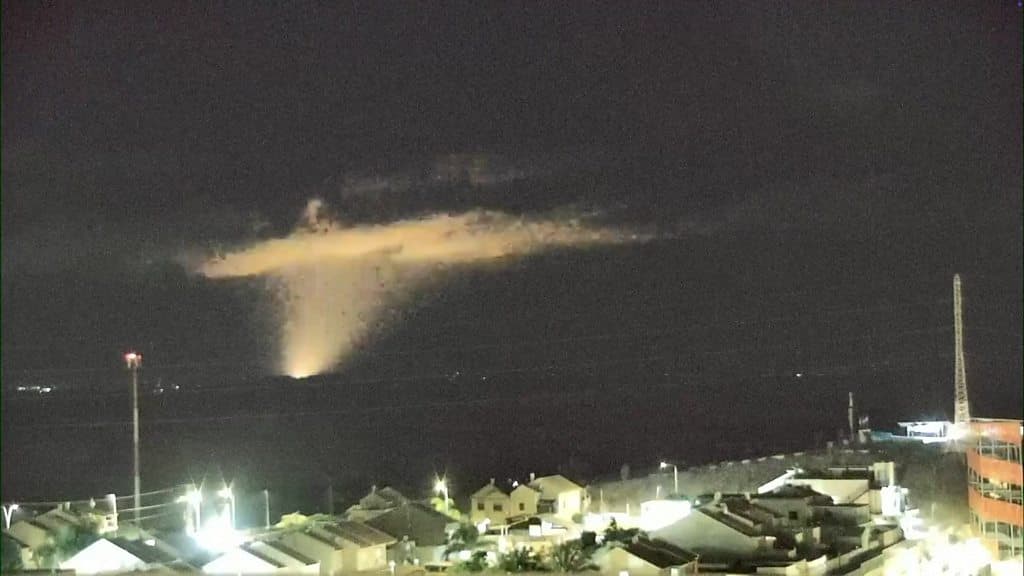We're loading the full news article for you. This includes the article content, images, author information, and related articles.
The renewed violence, resulting in at least nine Palestinian deaths, jeopardises a US-brokered truce and raises concerns in Kenya over regional stability and potential economic fallout.

JERUSALEM - Israeli warplanes conducted a series of airstrikes across the Gaza Strip late on Tuesday, October 28, 2025, effectively shattering an 18-day ceasefire after Prime Minister Benjamin Netanyahu accused Hamas of committing a "clear violation" of the truce. The strikes, which witnesses reported in Gaza City and Khan Younis, resulted in at least nine fatalities, including two children, according to Gaza's civil defense agency. This sudden escalation represents the most significant threat to the US-brokered agreement that had paused a conflict active since October 7, 2023.
The Israeli bombardment began shortly after Mr. Netanyahu ordered the military to carry out "powerful strikes" following an emergency security meeting. The stated reasons for the retaliation were twofold: an alleged attack by Hamas militants on Israeli troops in southern Gaza and a dispute over the remains of an Israeli hostage. Israeli military officials reported that Hamas fighters had fired an anti-tank missile and guns at their forces near Rafah. Hamas, however, has denied responsibility for the attack, stating it remains committed to the ceasefire agreement.
Adding to the tensions, Israel expressed fury over the return of remains identified as those of Ofir Tzarfati, a hostage whose body had already been partially recovered by Israeli forces in November 2023. Mr. Netanyahu's office labeled this a "clear violation" of the deal, which stipulates the return of all hostage remains. In response to the Israeli strikes, Hamas's armed wing, the al-Qassam Brigades, announced on Tuesday evening that it was postponing the scheduled handover of another hostage's remains.
Gaza's civil defense agency reported a rising death toll from the Israeli attacks. In Khan Younis, a strike on a vehicle killed five people, including two children. In Gaza City's Sabra neighborhood, a strike on a residential building killed four people. Local health officials confirmed the casualties were transported to nearby hospitals. The strikes continued into early Wednesday morning, according to local witnesses.
The international response has been swift, with Turkey's foreign ministry condemning the Israeli strikes as a "flagrant violation of the ceasefire." In Washington, US officials confirmed that Israel had notified them before launching the attacks. US Vice President JD Vance, who had recently visited Israel to bolster the truce, attempted to downplay the severity of the incident, stating that the ceasefire was holding despite "little skirmishes here and there."
While the immediate conflict is geographically distant, its reverberations pose significant concerns for Kenya and the broader East African region. The Kenyan government, which had welcomed the initial ceasefire on October 9, 2025, has consistently advocated for a lasting peace anchored on a two-state solution. Prime Cabinet Secretary Musalia Mudavadi had lauded the truce as a "vital step in easing human suffering in Gaza" and urged all parties to work towards a comprehensive peace process.
The collapse of this ceasefire could exacerbate regional instability, impacting global trade and security. East Africa is already contending with the economic consequences of disruptions in the Red Sea, where attacks by Houthi militants, who are allied with Iran, have rerouted vital shipping lanes. This has led to increased shipping costs and delays for essential imports to ports like Mombasa, fueling inflationary pressures on fuel and other goods. An escalation of the Israel-Hamas conflict risks further destabilizing the Middle East, which could have a cascading effect on these maritime trade routes, directly impacting Kenyan consumers and businesses.
Furthermore, Kenya's foreign policy, which has recently pivoted more towards the West, and its long-standing counterterrorism partnerships, place it in a delicate diplomatic position. The government has maintained a cautious and balanced approach, expressing concern for its diaspora in the Middle East while calling for restraint. The renewed conflict underscores the fragility of peace in the region and highlights the potential for ideological spillover, a concern for a nation that has previously experienced terrorist attacks. As stated by President William Ruto at the UN General Assembly in September 2025, Kenya continues to call for a permanent ceasefire and adherence to international law as the only path to a stable two-state solution.
Keep the conversation in one place—threads here stay linked to the story and in the forums.
Sign in to start a discussion
Start a conversation about this story and keep it linked here.
Other hot threads
E-sports and Gaming Community in Kenya
Active 9 months ago
The Role of Technology in Modern Agriculture (AgriTech)
Active 9 months ago
Popular Recreational Activities Across Counties
Active 9 months ago
Investing in Youth Sports Development Programs
Active 9 months ago